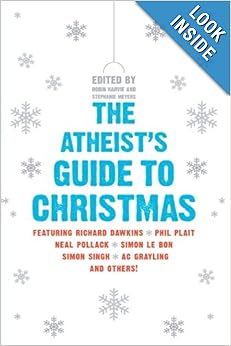
Many people are of the opinion that Christmas is a Christian holiday but that is far from the truth. What we celebrate as Christmas today is actually an amalgamation of different pagan rituals that have been in practice for several centuries, from before the birth of Christ. Most traditions that are associated with this particular holiday, like decorating Christmas trees, exchanging Christmas gifts and singing Christmas carols, are rooted in the practices of ancient non-Christian religions.
Before the inception of Christianity, Romans celebrated the birth of the unconquerable sun god, whom they called Mithra, on December 25. Since winter solstice held the promise of earthly renewal during springtime in ancient Rome, two festivals, namely Saturnalia and Jevenalia, were organized to honour the sun god. During the weeklong Saturnalia, Mithra was revered for blessing mankind with agriculture and on Juvenalia, a feast was organized for the children of Rome.1. During these festivities, masters and servants exchanged gifts as well because the kind gesture was believed to bring good luck.
Contrary to popular belief, December 25 is not the day that Jesus was born. In fact, there is no mention of his exact birth date even in the Bible, though some references suggest that he was not born in winter at all. However, during the fourth century, when people were beginning to identify themselves as Christians, the Romans insisted that the new Christians continue to participate in their revelry as it was meant for all. That is when Christians started celebrating Christmas and it was inevitable that sooner or later, a connection between the birth of the Sun and the birth of the Son, was going to be made.
That is not all. Christmas has borrowed pagan practices from other cultures as well. The Norse celebrated Yule during winter solstice by gathering large logs to put on fire and feast around, as a sign of the return of the sun god. This celebration lasted for at least twelve days and usually ended in the first week of January. For all pagans, the evergreens were a sign of winter’s inability to end the cycle of life and they comforted the people with some hope of the sun’s return. The Celts and Germans held these trees in high regard and refrained from cutting them down. They often decorated the trees with religious icons in the wilderness itself and danced or sang around them as part of their rituals. The Druids tied fruits to the trees and brought back a branch or two so they could decorate their homes with it. They also baked cakes in different shapes to offer to their gods. That is where Christmas derives its traditions of decorating trees, singing carols and baking cakes.
After Christianity spread through the European continent, puritans were actually quite opposed to the celebration of Christmas because it had pagan roots. So much so, that the festival was outlawed and merrymakers were actually charged a fine for their mirth.
Today, people are divided over the celebration of Christmas because they have lost sight of the true meaning of the occasion. The festival has been commercialized excessively and in the process, people have forgotten how important it is for us to connect with our environment. Thus, they cut down trees in order to decorate them, clutter the planet with synthetic adornments and spend thousands of dollars on gifts to exchange. Instead, if people were to focus on the true meaning of Christmas, they would leave the evergreens intact, promote the use of organic materials and spend their money in helping the less fortunate. It is important to realize that pagan traditions came into being so that people could use them as a source of joy and hope in order to cope with the darkness and coldness that came along with the winter season.
In contemporary times, this holiday season is supposed to go beyond each individual’s religious beliefs and cultural practices so that it can be celebrated as a completely secular festival. During Christmas, we must all remember that this season is about unity, not divisiveness and thus push aside our spiritual differences, curb commercialism and do what is best for the planet and our fellow humans.
 |
The Atheist's Guide to Christmas A collection of smart, funny essays, of course—short works by 42 resolutely secular-minded geniuses about how to survive (and even enjoy) the holiday season. |
1 "An astute reader brought to our attention that a section in the original version of this post was unclear. The piece has been edited for clarity."
Before the inception of Christianity, Romans celebrated the birth of Saturn on December 25. Since ancient Romans believed that winter solstice held the promise of earthly renewal during springtime, two festivals, namely Saturnalia and Jevenalia, were organized to honour the god of yield and fertility. During the weeklong Saturnalia, Saturn was revered for blessing mankind with agriculture and on Juvenalia, a feast was organized for the children of Rome.





























